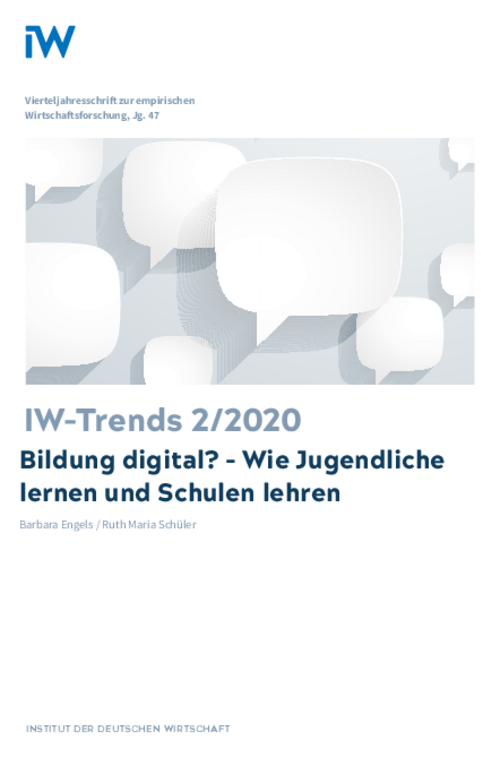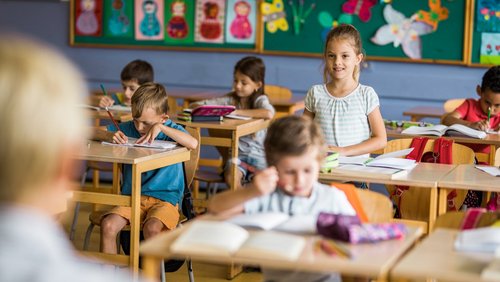Young people spend a lot of time online, a fact which influences how they learn and follow political and economic developments. This empirical study based on a survey conducted as part of the JUNIOR project examines how young people in Germany use the Internet for learning, focusing particularly on their criteria for selecting videos for educational and information purposes.

Digital Education?: How Young People Learn and Schools Teach
IW-Trends

Young people spend a lot of time online, a fact which influences how they learn and follow political and economic developments. This empirical study based on a survey conducted as part of the JUNIOR project examines how young people in Germany use the Internet for learning, focusing particularly on their criteria for selecting videos for educational and information purposes.
The results show that personal networks are the most important source of video recommendations, while boys are more strongly influenced than girls by the number of times a video has been viewed and the video platform’s suggestions. This shows the importance of digital, and especially media, literacy in ensuring that teenagers have the information necessary to select videos from trusted sources and with fact-based content. Additionally, the study uses 2018 PISA data to analyse the extent to which students’ online behaviour at home is discussed in school lessons and how well they are taught to deal confidently with digital media. This two-pronged analysis compares the demand and supply sides of digital teaching. The resulting policy recommendations, such as teaching media skills to both students and teachers, are given additional urgency by recent experience with digital learning during the Corona crisis.

Barbara Engels / Ruth Maria Schüler: Bildung digital? - Wie Jugendliche lernen und Schulen lehren
IW-Trends

More on the topic

Teaching hours at elementary school country comparison
Young people's educational paths are very much predetermined during their primary school years. On the one hand, the basic skills of reading, writing and maths are acquired, and, on the other hand, the joint learning of all children ends with the transition to ...
IW
Equality of Educational Opportunity: A Challenge for the German Education System
Germany has been making good progress towards achieving equality of opportunity in its education system. Latterly, however, it has become clear that the correlation between socio-economic background and educational success is again becoming more pronounced, a ...
IW